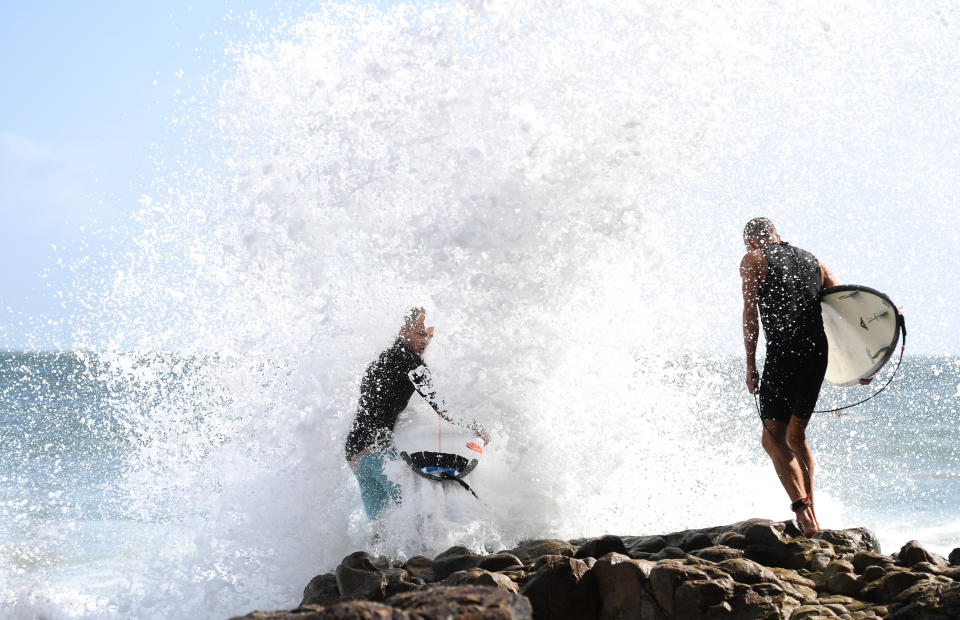The popular holiday town where 2000 homes are at serious risk
Climate change experts are warning residents in a popular Queensland holiday town that up to 2000 coastal homes could be flooded by rising ocean levels come the turn of the century.
The Sunshine Coast’s Noosa looks set to declare a climate emergency following a report which will be put forward at a council meeting on Monday, A Noosa Council spokesperson told Yahoo News Australia.
The report also revealed 200 residential lots could be washed away completely from coastal erosion if the current trajectory continues.

“Projections indicate that by 2100, up to 2000 residential and tourist accommodation lots and 29 commercial/retail properties could be within the projected storm tide inundation zone in a 1-in-100-year scale storm," the report warned.
"Up to 200 private residential lots, and three commercial/retail lots could be within the projected 1-in-100-year coastal erosion prone area."
Such significant findings will surely prove alarming to homeowners in the area, especially with tourism such a strong part of the region’s economy.

The report advises council to “accept the latest science on climate change” and agree drastic action is needed to protect “vulnerable” Noosa.
The report from the Environment and Sustainable Development Department said legislated programs and policy positions were needed from council to ensure emissions of greenhouse gases decreased.
Heatwave hell predicted
Among the report’s predictions, the year’s longest heatwave will rapidly increase in length, from four days currently to 12 days by 2050 and 56 days by 2090.
This would mean the number of hot nights where the temperature does not go below 20C is likely to increase from the current 12 nights per year to around 52 by 2050 and up to 112 nights by 2090.
Overall the average temperature would rise by 3.6C by 2090.

“Financial and emotional stress stemming from damage to private assets, plus the costs associated with disaster management and recovery to public budgets, will increase significantly as a result of more frequent and severe natural hazards,” the council noted.
While Noosa has already committed to net zero emissions target by 2026, it is expected extra funding will be made available to ensure their goal is met.
Community feedback will now be sought in October before a final detailed action plan with proposed measures to help mitigate coastal hazard risks will be submitted in December.
The report comes the same week as Byron Shire council issued a warning to residents as a caravan park appeared to be under threat from coastal erosion at the popular Clarkes Beach.
Do you have a story tip? Email: newsroomau@yahoonews.com.
You can also follow us on Facebook, download the Yahoo News app from iTunes or Google Play and stay up to date with the latest news with Yahoo’s daily newsletter. Sign up here.


